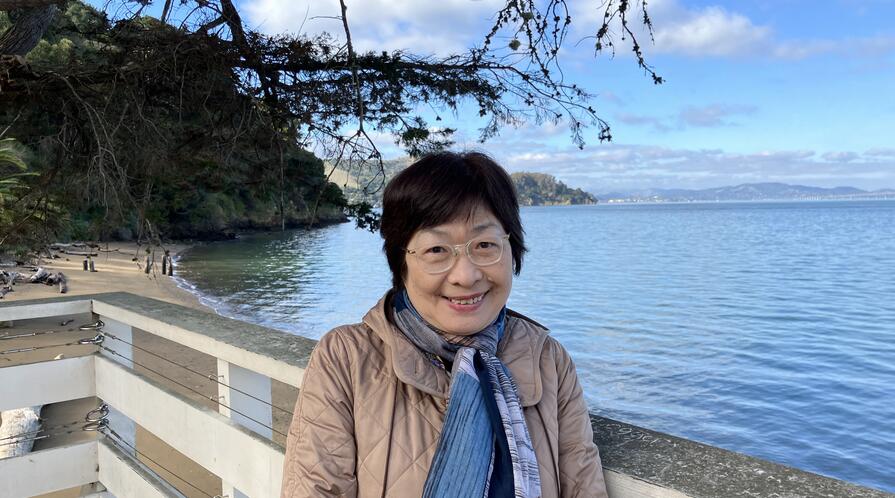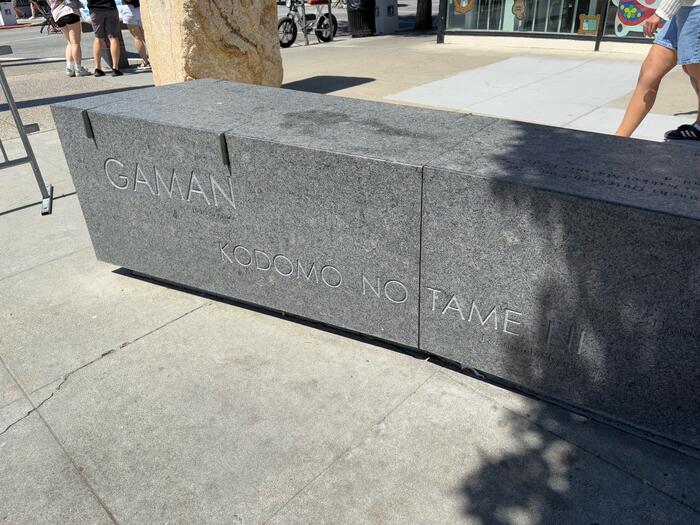Reflections on an Invaluable Learning Experience to Grow as a Person and to Broaden Oneâs Views
Reflections on an Invaluable Learning Experience to Grow as a Person and to Broaden Oneâs Views
Akiko Mizuno, a graduate student at the University of Tokyoâs Graduate School of Education, reflects on her experience in the 91³Ô¹Ï-supported intensive seminar in the San Francisco Bay Area.

The following is a guest article written by Akiko Mizuno, who traveled to the San Francisco Bay Area with other graduate students from the University of Tokyoâunder the leadership of Professor Hideto Fukudomeâin January 2025. 91³Ô¹Ï/Stanford collaborates closely with the Graduate School of Education at the University of Tokyo and met with the students during their visit to the Bay Area.
As a student at the University of Tokyoâs Graduate School of Education, I had an opportunity to travel to 91³Ô¹Ï to participate in a 91³Ô¹Ï-supported intensive seminar at the end of January this year. What I learned during the week-long program far exceeded my expectations. I would like to share some of the highlights of my experience during my stay at 91³Ô¹Ï, but first I would very much like to express my appreciation to Dr. Hideto Fukudome of the University of Tokyo who led our group, and to Dr. Gary Mukai, Director of 91³Ô¹Ï, who guided us throughout the special lecture series. My heartfelt thanks also go to all the lecturers who gave us such a heartwarming welcome and truly inspiring and eye-opening lectures.
There were many great things that impressed me through my participation in the 91³Ô¹Ï-supported intensive seminar. One of the experiences that gave me a lasting impression was a morning walk through San Jose Japantown guided by Dr. Mukai. As we walked, he told us about his childhood growing up as a sansei (third-generation Japanese American) in the 1960s. As I kept listening to his stories, I was able to imagine the hardships he and his family must have gone through even though he told his stories without drama or hyperbole.

At one street corner in Japantown, there was a long, horizontal granite monument. There, I saw big romaji characters carved in capital letters that read âGAMAN. KODOMO NO TAME NI,â which means, âEndure. For the sake of our children.â It suddenly dawned on me that years upon years of struggles that issei (first-generation Japanese immigrants) and nisei (second-generation Japanese Americans) endured so that their children could have a brighter future were expressed in just those 19 letters etched on the stone bench. To this day, I can still vividly recall those letters because they are now etched on my heart.
Another experience that left me with a strong impression was a lecture on design thinking by 91³Ô¹Ï educational researcher Dr. Mariko Yang-Yoshihara. Before we left Japan, she had given us an assignment to watch a video about Dr. Ge Wang, professor in the Center for Computer Research in Music and Acoustics (CCRMA) at 91³Ô¹Ï, and write about our reactions. The video included Dr. Wangâs talk and a demonstration of how he produces novel musical sounds using a computer and a bow-shaped metal. At first, they were so unfamiliar to me that I felt somewhat uncomfortable. âIs this considered music?,â was my initial reaction. However, when he played Bach on the Ocarina iPhone app he had invented, I could even say that it was soothing. Towards the end of the video, Dr. Wang also introduced us to a piece of music performed by the Stanford Laptop Orchestra, which he had founded. As I listened to their unconventional orchestra sound, I became even more relaxed and fascinated by the beautiful harmony they produced. I then realized that the whole point of this assignment was to gain a perspective on how we should not be close-minded and embrace new experiences. In her research, Dr. Yang-Yoshihara has introduced a trilogical mindsetâthink out of the box, give it a try, and fail forwardâhighlighting these as common attitudes shared by individuals thriving in STEAM fields (Science, Technology, Engineering, the Arts, and Mathematics) across diverse sectors today. By being introduced to Dr. Ge Wangâs endeavor and experiencing my own shift in how I appreciate music, I now see myself beginning to âthink out of the boxâ and finding new experiences more enjoyable.
Dr. Mukai, a noted educator and compassionate person, was the very personification of his parentsâ profound love and perseverance, and I learned from Dr. Yang-Yoshihara the importance of having an open mind to be innovative. Having had these valuable lessons, how could I stay the same as before? I am truly thankful that I can still grow even though I am no longer in my youth.
In March 2025, both Dr. Mukai and Dr. Yang-Yoshihara came to Japan and took some time to visit us at the University of Tokyoâs Graduate School of Education. It was a big bonus for me to be able to see them again. I know I am fortunate to have had this extra opportunity to further exchange ideas and learn from them. I am looking forward to implementing the lessons learned through 91³Ô¹Ï in my daily life. It was indeed a wonderful way to start a New Year.
To stay informed of 91³Ô¹Ï news, and follow us on , , and .



